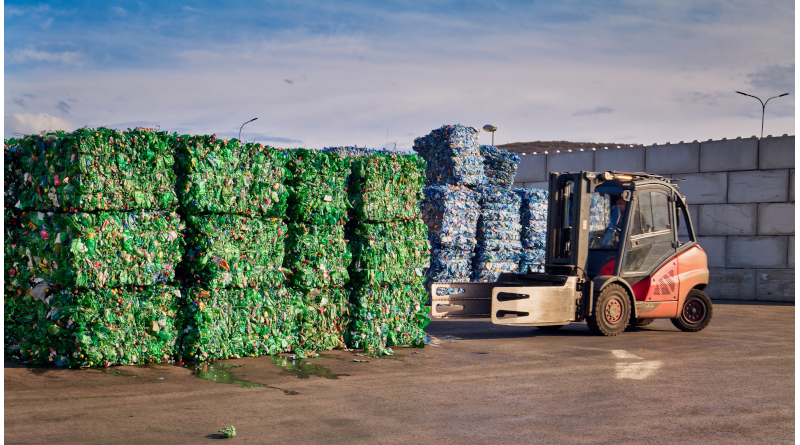PET to PET mid-term balance: 16,071 tonnes of PET beverage bottles successfully recycled
After a constant recycling volume of 32,283 tonnes of PET material in 2023, PET to PET Recycling Österreich GmbH recorded 16,071 tonnes of PET beverage bottles that were successfully kept in the resource cycle in the first half of 2024. This corresponds to a decrease of nine per cent compared to the previous year (first half 2023: 17,755 tonnes). Christian Strasser, Managing Director of PET to PET, cites the following reasons for this: “The industry is still under very high cost pressure. Inflation was also at a painfully high level in the first half of the year. Companies are forced to utilise all cost-cutting potential in order to be economically successful,” and continues: “The demand for used PET beverage bottles is still very high. The recyclates are used in many applications such as beverage bottles, textiles, films, etc. This leads to a high price level for the bottles and the recyclates produced from them, which are significantly more expensive than virgin material. Such framework conditions work against a well-functioning circular economy.”
Recyclate use for PET beverage bottles at a high level – ambitious recycling target of 50% for plastic packaging
Despite the difficult conditions, PET to PET has continued to record constant growth in processing volumes over the last few years. With 17,755 tonnes of PET beverage bottles recycled in the first half of 2023, an increase of more than 17% compared to 2022, the company recorded an absolute record year. The use of recycled PET beverage bottles in Austria remains at a very high level and, at more than 40 per cent, already clearly exceeds the EU targets for 2025 (25 per cent) and 2030 (30 per cent). Preparations are currently underway for the imminent introduction of the deposit system for PET and cans in Austria from 1 January 2025. In addition, the EU member states face the challenge of recycling at least 50 per cent of plastic packaging placed on the market from 2025 – a target that is difficult for many countries to meet. The recycling rate for plastic packaging in Austria is currently around 25 per cent.
PET to PET expands building space
The recycling company continues to invest in its site. Last year, the existing silo facility with a storage volume of approx. 640 m³ was extended by a further 140 m3 storage silo in order to be prepared for the increased return volume expected as a result of the deposit system and the growing demand for recyclates delivered directly loose in the silo. This will save additional packaging materials, as there will be no need to fill individual big bags (pallet bags). “In 2024, the focus will be on expanding the building space at PET to PET in order to offer the team, which now numbers over 90, an adequate and modern workplace at the site. A 225 m2 office building is currently being constructed. This new complex contains office space as well as social areas such as changing rooms and sanitary facilities for employees. An event room for meetings and events is planned for the top floor,” says Thomas Billes, Managing Director of PET to PET. A 100 m2 workshop for mechanical and electrical maintenance is also being built this year.
Focus on sustainability
PET to PET relies 100 per cent on renewable energy to operate its systems. Last year, the pioneering company successfully commissioned its first photovoltaic system. With an area of 6,400 m² and an output of 1,200 kWp, 1,210,943 kWh of electricity has been generated so far – this corresponds to a CO2 saving of around 484 tonnes. There are currently 2,373 PV panels in use, which cover around 10 per cent of the required electrical energy from our own generation.
In order to provide even more transparency with regard to the resource-saving measures implemented at the site, PET to PET has prepared its first sustainability report for 2023 in accordance with GRI standards and will continue to report on the company’s sustainable developments in the future. The recycling company is already taking decisive steps in this regard, as the company will not be legally required to report under the Corporate Sustainability Reporting Directive (CSRD) until 2026.

